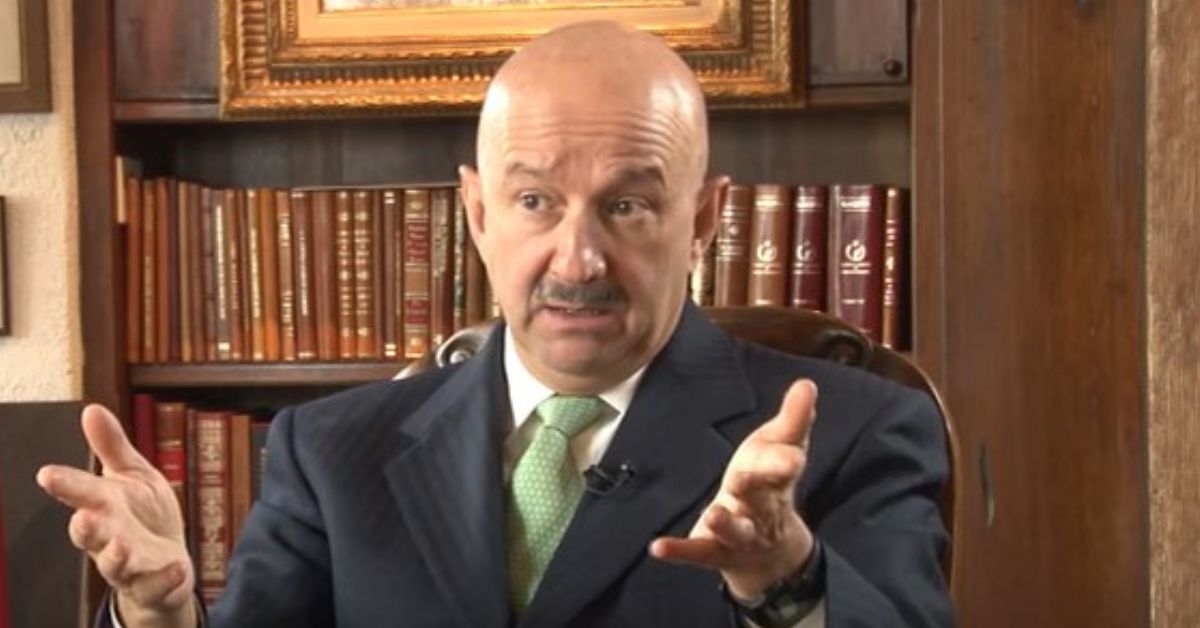Unveiling: Who Is Carlos Salinas? Facts & Insights
Who is Carlos Salinas de Gortari, and why does his name still resonate with such intensity in Mexico, decades after his presidency? The truth is, his actions, policies, and the controversies that swirled around him continue to shape the nation's political and economic landscape.
Carlos Salinas de Gortari, a figure of complex legacy, served as President of Mexico from 1988 to 1994. His tenure was marked by ambitious economic reforms, including the North American Free Trade Agreement (NAFTA), privatization of state-owned enterprises, and a shift towards a market-oriented economy. These policies, while hailed by some as transformative, were also heavily criticized for exacerbating social inequalities and contributing to corruption. The Salinas presidency was a period of profound change, but also one riddled with accusations of electoral fraud, political assassinations, and the rise of powerful drug cartels. Understanding Carlos Salinas requires delving into the intricacies of these interwoven narratives.
| Attribute | Details |
|---|---|
| Full Name | Carlos Salinas de Gortari |
| Born | April 3, 1948, Mexico City, Mexico |
| Education |
|
| Political Affiliation | Institutional Revolutionary Party (PRI) |
| President of Mexico | 1988 1994 |
| Key Policies and Initiatives |
|
| Major Controversies |
|
| Post-Presidency Activities |
|
| Reference | Wikipedia: Carlos Salinas de Gortari |
Salinas's ascent to the presidency in 1988 was itself contentious. The election, characterized by allegations of vote tampering, saw him narrowly defeating Cuauhtmoc Crdenas, the candidate of a coalition of left-leaning parties. The collapse of the computer system used to tally the votes on election night fueled widespread suspicion, and the PRI's dominance, which had held sway for over six decades, was suddenly under siege. This contested victory set the stage for a presidency marked by both sweeping reforms and deep-seated doubts about legitimacy.
One of Salinas's most significant achievements was the negotiation and implementation of NAFTA, a landmark agreement that eliminated trade barriers between Mexico, the United States, and Canada. Proponents argued that NAFTA would stimulate economic growth, attract foreign investment, and create jobs. Indeed, Mexico experienced a period of economic expansion in the early 1990s, and trade with its North American partners surged. However, critics contended that NAFTA led to job losses in certain sectors, exacerbated income inequality, and undermined Mexican sovereignty. The impact of NAFTA remains a subject of vigorous debate, with assessments varying widely depending on perspective and economic indicators. Some observers suggest that NAFTAs success was limited, and its benefits were not evenly distributed across the population.
The privatization of state-owned enterprises, a key element of Salinas's economic agenda, aimed to reduce government debt, increase efficiency, and attract private investment. Companies like Telmex, the state-owned telephone company, were sold to private investors. While privatization brought in much-needed capital and modernized infrastructure in certain sectors, it also raised concerns about transparency, corruption, and the potential for monopolies. The sale of key assets often occurred at prices considered favorable to the buyers, further fueling suspicions of cronyism. Many feared that these changes would consolidate wealth in the hands of a few and erode the countrys social fabric.
Simultaneously, Salinas launched a series of anti-poverty programs, notably the National Solidarity Program (Solidaridad). This initiative aimed to provide social services, infrastructure improvements, and direct aid to communities. While Solidaridad was praised for its efforts to alleviate poverty and improve living conditions, it also faced criticism for its political motivations and the lack of accountability in its implementation. Critics alleged that the program was used to shore up support for the PRI, particularly in marginalized communities, and that funds were diverted or misused.
The Salinas presidency was overshadowed by a series of high-profile political assassinations that shook the nation. The assassination of Luis Donaldo Colosio, the PRI's presidential candidate and Salinas's hand-picked successor, in 1994, was a pivotal moment. This act of violence, combined with the assassination of Jos Francisco Ruiz Massieu, the PRI Secretary General, deepened the crisis of confidence in the government and raised serious questions about the rule of law. Many speculated about the motivations behind these crimes, with some linking them to political infighting and the struggle for power.
Furthermore, the Salinas years coincided with the rise of powerful drug cartels, who exploited the weaknesses of the state and the corruption within the government. The governments relationship with drug trafficking organizations was shrouded in uncertainty, and allegations of complicity and corruption within the government persisted. The violence associated with drug trafficking escalated during and after the Salinas presidency, contributing to a climate of fear and instability.
In the wake of his presidency, Carlos Salinas faced numerous allegations and controversies. He was accused of corruption, abuse of power, and involvement in the political assassinations that plagued his administration. His brother, Ral Salinas de Gortari, was implicated in corruption and money laundering, further damaging the former presidents reputation. While some investigations failed to produce conclusive evidence, the accusations have left an indelible mark on his legacy, and the public still questions his conduct and motivations.
The legacy of Carlos Salinas de Gortari is complex and multifaceted. He is credited with implementing economic reforms that modernized the Mexican economy and integrating the country into the global market. However, his presidency was also marred by allegations of electoral fraud, corruption, and political violence. The long-term effects of his policies, particularly NAFTA, are still debated, and the controversies surrounding his administration continue to resonate in Mexican politics and society. It is a legacy that demands continued scrutiny and critical assessment.
To grasp the full picture, one must explore the historical context in which Salinas operated. The late 1980s and early 1990s were a time of significant upheaval worldwide, with the fall of the Berlin Wall, the collapse of the Soviet Union, and the rise of globalization. Mexico, like many other nations, was attempting to navigate these turbulent waters, and Salinas's policies were a response to the perceived need to modernize the economy and align with the new global order. He sought to position Mexico as a key player in the global market, while also grappling with internal political and economic challenges. The decisions made during his presidency have had lasting impacts on Mexican society, leaving behind both opportunities and unresolved conflicts.
The economic reforms Salinas implemented were often framed as necessary steps towards achieving greater prosperity and stability. However, these reforms also led to increased economic inequality, with a widening gap between the rich and the poor. While some segments of the population benefited from the new economic opportunities, others were left behind, struggling with job losses, lower wages, and increased competition. The social consequences of these economic policies are still being felt today, and continue to be debated in academic circles and political discussions.
The privatization of state-owned enterprises was a key feature of Salinas's economic strategy. Proponents argued that privatization would lead to greater efficiency, innovation, and competition, ultimately benefiting consumers. However, critics raised concerns about transparency, corruption, and the potential for monopolies. The sale of state assets often occurred under conditions that favored certain investors, raising questions about the integrity of the process. These transactions were often perceived as a transfer of wealth to a select few, while leaving the majority of the population with little benefit.
NAFTA, as mentioned, was a defining achievement of the Salinas administration. The agreement, which eliminated trade barriers between Mexico, the United States, and Canada, was hailed by its supporters as a catalyst for economic growth and integration. It facilitated trade, investment, and job creation, leading to increased economic activity. However, critics argued that NAFTA led to job losses in certain sectors, as Mexican businesses struggled to compete with their North American counterparts. The agreement also raised concerns about the exploitation of labor and environmental standards. The impact of NAFTA is a topic of ongoing debate, with varying assessments of its effects on different sectors of the Mexican economy.
The political assassinations that occurred during Salinas's presidency cast a dark shadow over his administration. The murders of Luis Donaldo Colosio and Jos Francisco Ruiz Massieu, both prominent members of the PRI, raised concerns about the rule of law and the stability of the government. These events fueled speculation about political conspiracies and the involvement of powerful individuals. They shook the Mexican political system and eroded public trust in the government. To this day, the question of who was behind these assassinations remains a subject of intense debate and speculation.
The rise of drug cartels during the Salinas era further complicated the political landscape. The governments response to the growing drug trade was often criticized, with allegations of corruption and complicity. The cartels exploited the weaknesses of the state, expanding their operations and consolidating their power. The violence associated with drug trafficking escalated, leading to a climate of fear and insecurity. The legacy of the Salinas administration is inextricably linked to the growth of the drug cartels, and the impact of this phenomenon is still felt in Mexico today.
The National Solidarity Program (Solidaridad) was implemented under Salinas with the stated goal of alleviating poverty and improving the living conditions of marginalized communities. While the program provided resources for infrastructure projects, social services, and direct aid, it also faced criticisms. Critics alleged that the program was politically motivated and that resources were often diverted or misused. They questioned the transparency and accountability of the program, and its effectiveness in achieving its stated goals. Despite the controversy, Solidaridad left a lasting impact on Mexican society, and its legacy is still subject to debate.
The enduring significance of Carlos Salinas de Gortari lies not only in his policies and actions but also in the questions they raise about governance, corruption, and the future of Mexico. His presidency continues to be a subject of scholarly inquiry, political analysis, and public debate. His legacy is a testament to the enduring complexities of Mexican history and the challenges of navigating political and economic transformations. Salinas's story remains relevant because it provides insights into the forces that have shaped Mexicos trajectory, highlighting the interconnectedness of economic reform, political stability, and the persistent struggle for social justice. Further research and critical analysis are crucial to understanding this complex figure and his lasting impact on the nation.
In essence, understanding "Carlos Salinas" requires a comprehensive approach. It demands that one examines the economic shifts he championed, the political turmoil that defined his era, and the long-term consequences of his decisions. His story is not merely a historical account; it is a reflection of the ongoing transformation and challenges facing Mexico.



